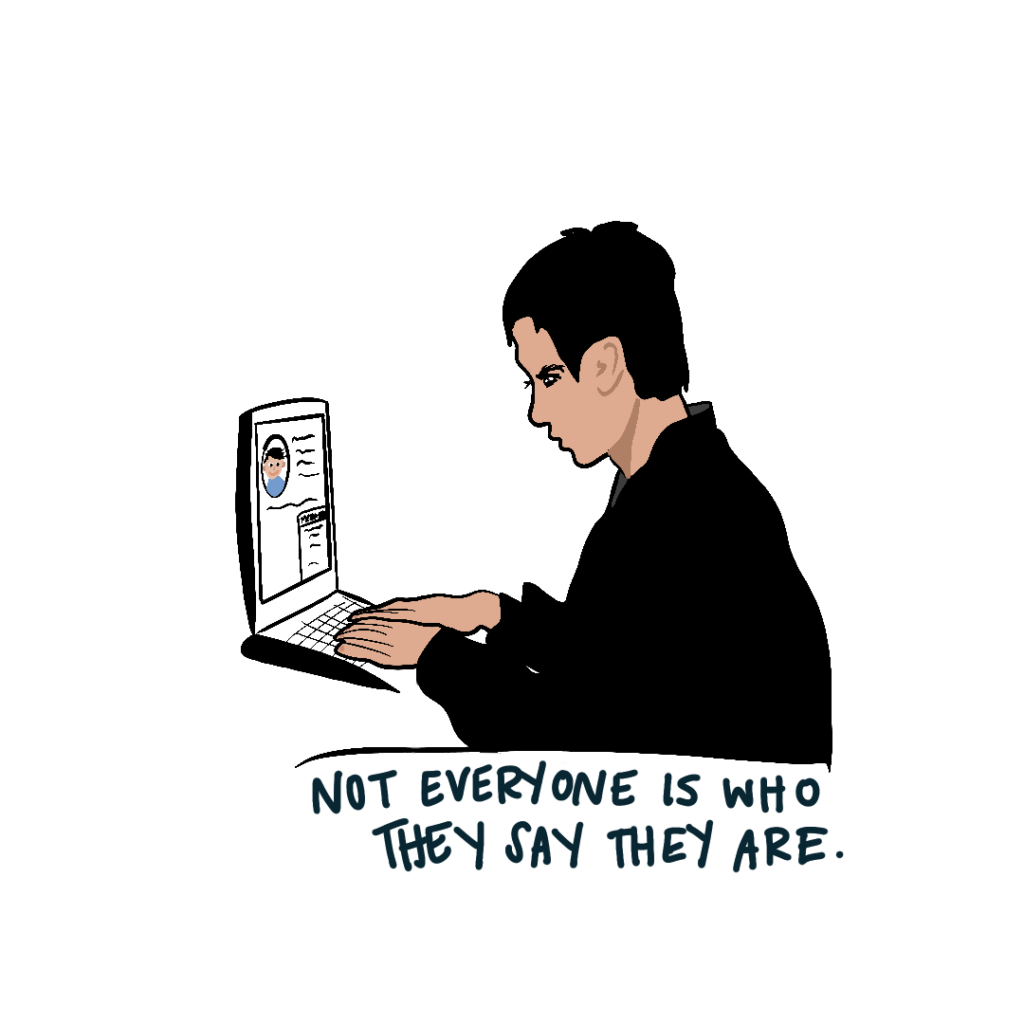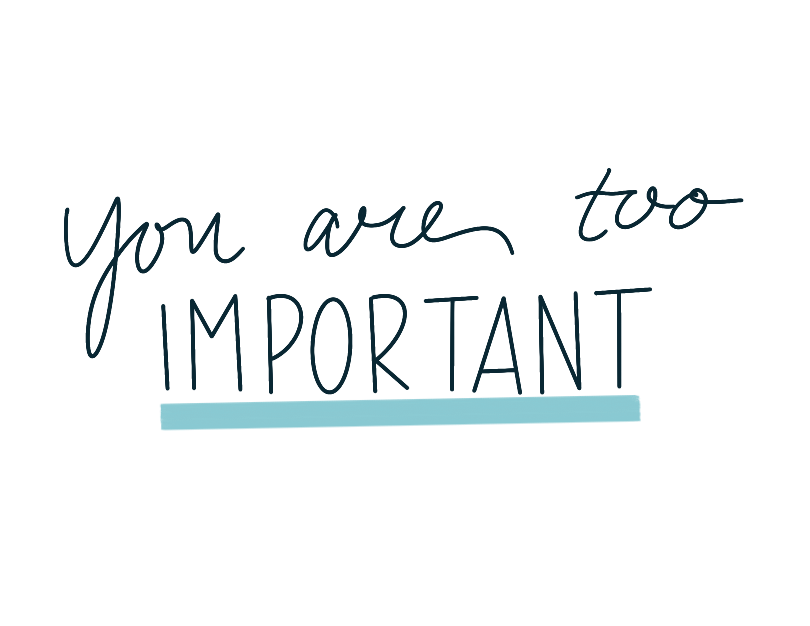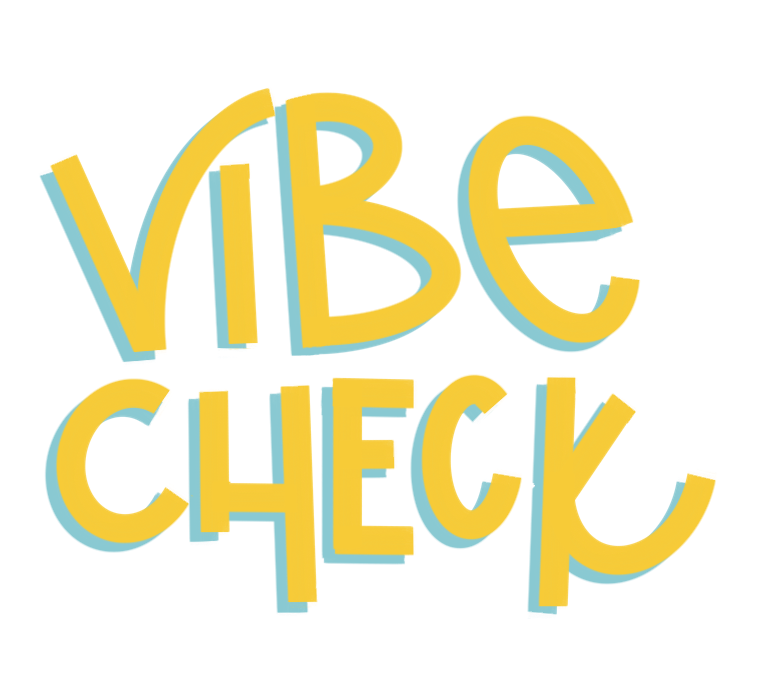How Online Traffickers Work
Traffickers often appear friendly and nice. Traffickers generally start out by flattering you. Giving lots of compliments and making you feel special allows them to begin to build trust and friendship with you. The more natural a conversation flows with a stranger, the more suspicious you should be. They might say things like, “I am so grateful to have you in my life” or even, “I don’t know where I would be without having a friend like you to talk to.”
Pretty tricky, huh? Remember, traffickers aren’t usually some creepy guy in a white van. Sometimes traffickers can even be friendly and seemingly normal.


Traffickers typically want to talk one-on-one. Traffickers thrive in anonymity and secrecy. If they can talk to you in a space where there is no accountability, you’re in a danger zone. Traffickers want to be able to talk to you privately where no one else can see or hear them. These conversations could take place anywhere from Snapchat to WhatsApp to the Bible app. If they can talk with you privately, you’re at risk.
Shortly after requesting to talk privately, traffickers will almost always ask to exchange pictures or videos. This can start off innocent, but remember that the pictures they send you can come from anywhere on the internet. Traffickers will often use real pictures of other people they have seen online and pose as them to build trust with you. They will also use any tools they can to get more information about you, including pictures that you or your family and friends post. The more that your information is public, the more at risk you are.
They engage small talk and ask lots of questions. Traffickers will always appear to be interested in what you’re interested in. They will ask you about your hobbies, your friends, your favorite movies, and even your dreams for the future. Beware! These seemingly harmless questions are used by traffickers to groom you into trusting them.
They may mention information about you that you haven’t shared with them because they’ve stalked you online. Trust your intuition. If the person you are talking to online mentions something you’ve never told them before, listen to your gut. It’s also possible that the trafficker is connected with someone in your community.
It might not be just you that they are stalking. In addition to stalking you on the internet, it is likely that traffickers will stalk your friends and family too. By knowing who your family and close friends are, they can gain more information about you, or use them to blackmail you into doing things that you may not feel comfortable with. It’s always a good idea to talk to your friends and family about what they may or may not post about you. If a friend posts a picture of you that gives away too much personal information, it might be a good idea to ask your friend to swap it out with another picture.
In addition to stalking you online they might track your online activity. Are you online around the same time every day? Do you post consistently or inconsistently? When are you home alone? Online traffickers often observe your behaviors online to gain more information about you. The more information they glean, the better they will be able to manipulate you.
They will ask you to keep your relationship with them a secret. Traffickers want to isolate you and convince you that other people won’t understand your relationship with them. They will often ask you to keep your conversations and relationship private. Traffickers might also convince you to lie about how you met, who you are really talking to, or where you got the gifts they bought for you.
Traffickers love vulnerability. Sometimes it might feel easier to talk to a stranger on the internet about your troubles than a close friend, but be wary. Whether you share a situation from school or a fight with a family member, being emotionally vulnerable online opens up an opportunity for a trafficker to earn your trust. They will often follow up with a fabricated story of their own. They might approach you with questions like, “What’s up? You can trust me with anything” or, “Hey, somethings up with you, would you want to talk about what’s going on?”
Traffickers will make you question your relationships with others, and even try to turn you against your friends and family. A trafficker knows they can’t exploit you if you have a strong support system so they will do their best to break that down. They might try to talk badly about close friends or family members, accusing them of being unsupportive and saying things like. “They just don’t understand you like I do.”
Traffickers’ stories are inconsistent and don’t always make sense. Traffickers will almost always agree with you, but over time their lies will catch up with them. Traffickers frequently lie about their age, interests, where they live and even their jobs. Do they say they travel often but their job doesn’t seem to match that lifestyle? Have their interests and favorite things changed over time? These are all examples of inconsistencies to watch out for.


Most traffickers will offer you gifts. It could be anything from buying you an Amazon gift card to buying you a skin on Fortnite but whatever it is, traffickers will offer you gifts to build trust with you. But be aware these “gifts” come with a hidden price. They could later use the gifts to guilt you into giving them what they want or use the opportunity to get more personal information, like your address.
Traffickers will make sexually suggestive and often uncomfortable comments. This could consist of making sexual jokes about you, or it could be sending you sexual images and asking you how it makes you feel. When they do this, they are testing your sexual boundaries and loyalty to them. The more you show you trust them, the more their true colors will show.
Traffickers will try to normalize their behavior. For instance, they might ask you to send them a sexual picture of yourself. If you resist or say no, they might act surprised or offended, like you’re weird or that it’s unusual that you wouldn’t want to send them that type of image. The trafficker may also try to accuse you of being too young to understand or try to convince you that what they are asking is normal and healthy.
Online traffickers will blackmail or intimidate you. This is when they show you their true intentions. They might say something like, “if you don’t do what I say, I will tell all of your friends your deepest, darkest secret” or “I will send your nudes to your parents” or even “I will hurt your little sister.”
Traffickers will try to make money off your exploitation. Depending on your proximity to them, a trafficker will oftentimes coerce you into meeting in person and sexually assaulting you. But make no mistake: Even if you are clear across the globe from the trafficker, they can still exploit you. For instance, traffickers will blackmail their victims into sending them more graphic, violent, or humiliating images to sell online or force them to work as a cam-model. Even still, some traffickers have instilled such an intense fear in their victims that they are able to “pimp them out” or prostitute them to in-person buyers while being thousands of miles away or even in prison.
